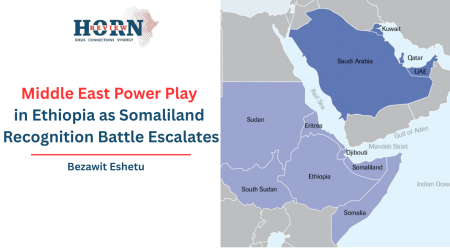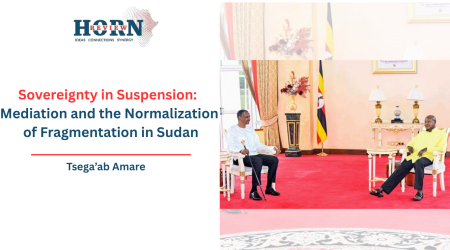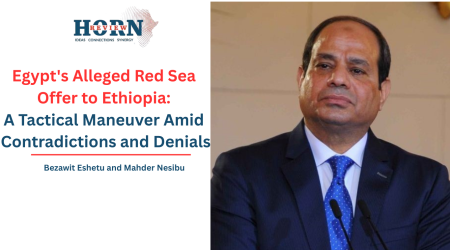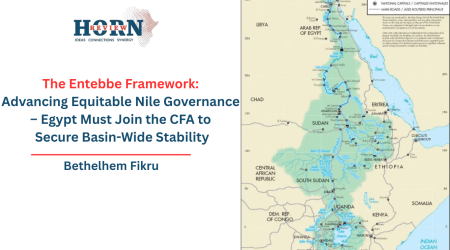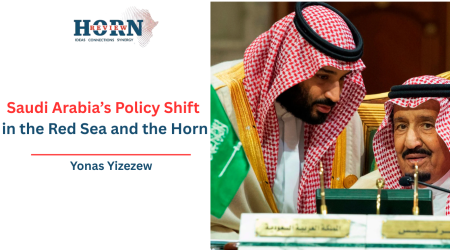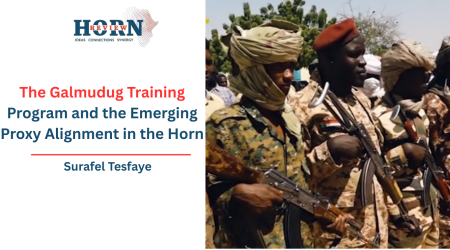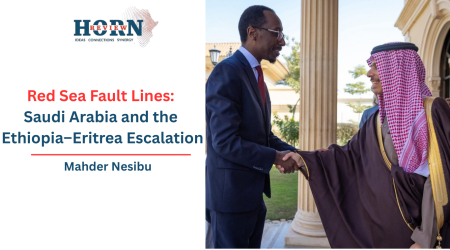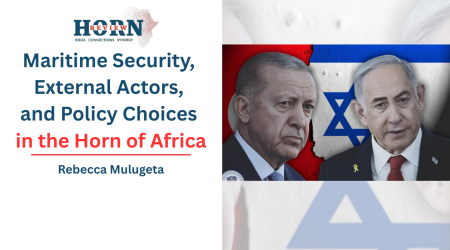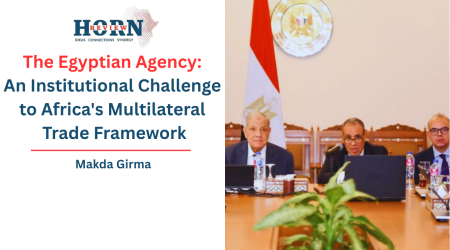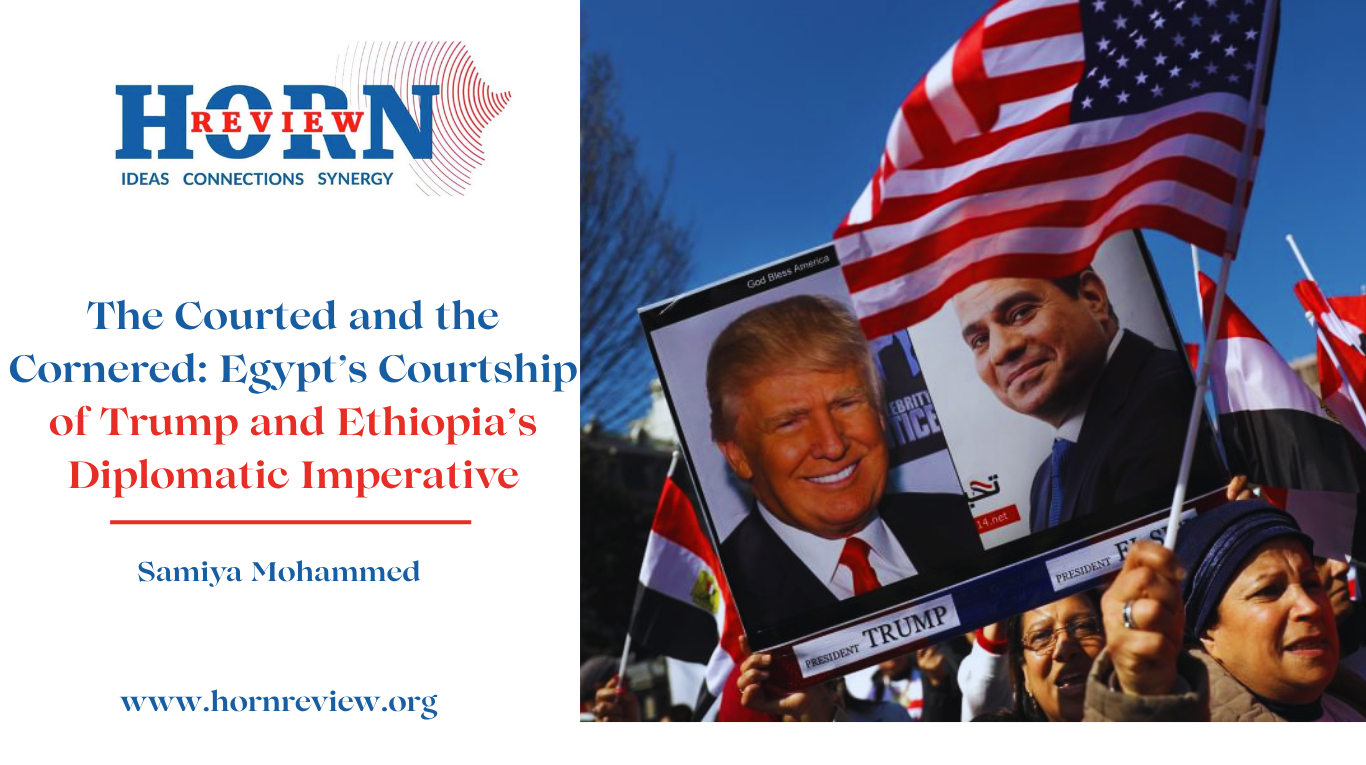
5
Nov
The Courted and the Cornered: Egypt’s Courtship of Trump and Ethiopia’s Diplomatic Imperative
The awarding of Egypt’s Collar of the Nile to Donald Trump constitutes in excess of a routine diplomatic exchange. As Egypt arranges this courtship, Ethiopia must meet Egypt’s diplomatic courtship with a strategic and transactional foreign policy. The medal, draped around Trump’s neck during the Sharm El-Sheikh peace summit, communicates a silent plea for continued American pressure on Ethiopia regarding the Grand Ethiopian Renaissance Dam. This development demands a more strategic, transactional approach to safeguard sovereign interests while preventing the United States from being forced into choosing between these two African powers.
The Collar of the Nile speak for Egypt’s highest state honour, a pure gold decoration adorned with Pharaonic motifs and stones that symbolizes the unity of Upper and Lower Egypt through the life-giving Nile, the placement of this collar around Trump’s neck constitutes premeditated public diplomacy. The ceremony strategically associated Trump with the prestige of the Nile itself, creating an unstated expectation of reciprocity in the form of renewed U.S. engagement on the dam dispute.
Egypt’s approach to hydro politics continues to rely heavily on colonial era treaties that upstream nations have unanimously rejected as unjust. Even with the historical baggage, Egypt has leveraged these treaties in international forums while simultaneously pursuing a multi-pronged strategy to influence the Trump administration through both symbolic gestures like the Collar award and substantive policy alignments, particularly regarding Arab-Israeli normalization, where Egypt provided crucial lobbying assistance to the Trump administration.
Since Trump’s return to power, Egypt has intensified its efforts to internationalize the dispute while simultaneously expanding its regional proxy moves. These include strengthening military ties with Somalia, where Egyptian troops have deployed to regions bordering Ethiopia as part of the African Union Support and Stabilisation Mission. Additionally, Egypt has opened a large naval base on the Red Sea coast and attached its most advanced warships to a newly created Red Sea squadron, with Foreign Minister Badr Abdelatty issuing veiled threats to use military means to settle the Nile dispute.
These developments shows an escalation past diplomatic pose into tactile military positioning that Ethiopia cannot afford to ignore. The previous Trump administration’s attempt to mediate the GERD dispute between 2019-2020 ultimately collapsed.Trump’s approach, which cast aside State Department professionals in favour of Treasury Secretary Steven Mnuchin.
When Ethiopia hesitated to sign the U.S.-drafted agreement, the Trump administration responded by threatening to withhold economic assistance, followed by Secretary of State Mike Pompeo suspending $130 million in aid to Ethiopia. The negotiation breakdown revealed Trump’s preference for transactional diplomacy creating a scenario where U.S. credibility became closely tied to satisfying Egyptian demands.
This historical context makes Egypt’s current courtship of Trump particularly alarming Which is the asymmetric value each country represents to U.S. strategic interests. Egypt has positioned itself as crucial to two of Trump’s primary foreign policy objectives, Arab-Israeli normalization and containing Chinese influence in Africa. Meanwhile, this situation demands that Ethiopia articulate a clear value proposition that raises the diplomatic and economic costs of the U.S. aligning exclusively with Egypt’s position on the GERD.
Ethiopia’s diplomatic philosophy lies what might be termed as the “Tekeda Doctrine,” named after Ambassador Tekeda Alemu, one of the leading originator of Ethiopia’s post-2002 foreign policy. This approach shows constructive engagement, mutual accommodation, and win-win outcomes without seeking to advance Ethiopian interests at the expense of others. As Ethiopia’s former permanent representative to the UN, Tekeda articulated a foreign policy berth in commitment to mutual accommodation, arguing that we don’t seek to advance our interests at the expense of others. This philosophy has earned Ethiopia significant credibility in multilateral forums, with Tekeda noting that Ethiopia today has a very good image and credibility in the eyes of the international community.
However, the intensifying geopolitical battle over the GERD reveals the limitations of this principled approach when confronting Egypt’s transactional courtship of the Trump administration. While Ethiopia has emphasized its role as a responsible international actor, this may prove insufficient against Egypt’s direct appeal to Trump’s transactional view of international relations.
The Tekeda Doctrine’s emphasis on multilateralism and rule-based engagement provides limited leverage against Egypt’s strategy of bilateral favour trading and symbolic gestures designed to influence the Trump administration directly.
The Ethiopia-Egypt rivalry has already expanded beyond the Nile basin into multiple regional coliseum, with Somalia emerging as a primary proxy fronts. Egypt’s decision to contribute troops to the African Union mission in Somalia, particularly their deployment in regions bordering Ethiopia like Gedo, Hiraan, and Lower Shabelle. Ethiopia must consequently develop a comprehensive strategy that addresses both the direct hydrological dispute and these emerging peripheral confrontations where Egyptian influence operations seek to constrain Ethiopian options.
However Ethiopia maintains significant advantages in geographic and hydrological realities. As the source of 85% of the Nile’s water through the Blue Nile, Ethiopia possesses hydro strategic leverage that cannot be negated through diplomatic moves alone. The GERD itself is now operational and represents a fait accompli that Egypt must eventually accommodate. Ethiopia’s consistent position that it has no obligation to request permission from anyone to fill the Renaissance Dam brings a legal and moral claim grounded in modern international law principles of equitable and reasonable utilization of trans boundary watercourses.
The Collar of the Nile around Trump’s neck brings both a challenge and an opportunity for Ethiopian diplomacy. It shows the urgent need to move beyond reactive diplomacy toward a proactive, strategic engagement with the Trump administration that clearly articulates Ethiopia’s value as a security and economic partner. The transactional nature of contemporary diplomacy requires offering tangible benefits rather than relying solely on historical friendships or principled positions.
Ethiopia must mount a comprehensive diplomatic offensive that combines multilateral engagement with direct appeals to the Trump administration’s economic and security interests. This emphasizes Ethiopia’s role as a stabilizing force in the Horn of Africa and a potential economic partner for American businesses seeking alternatives to Chinese dominance.
The Nile has flowed through Ethiopian highlands for millennia, and the GERD brings the latest chapter in the river’s history. What has changed is the geopolitics, where diplomatic medals and colonial relics must give way to recognition of shared destiny. Ethiopia’s success will depend on convincing the Trump administration that taking sides in a zero sum hydrological war serves neither American interests nor regional stability. Only through assertive, strategic diplomacy can Ethiopia ensure that the Collar of the Nile becomes a decorative artifact rather than a determinative factor in the struggle for the Nile’s future.
By Samiya Mohammed, Researcher,Horn Review

